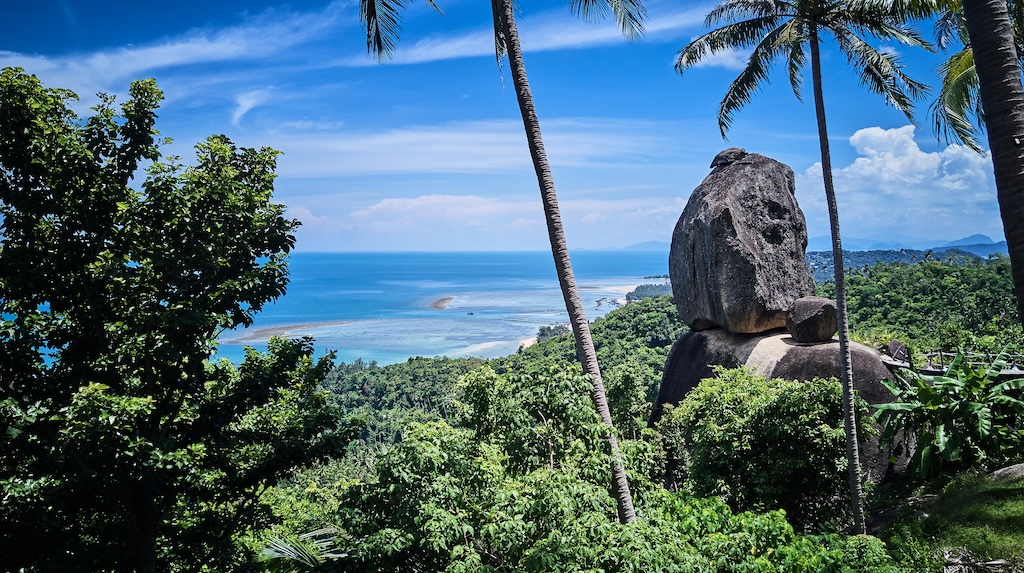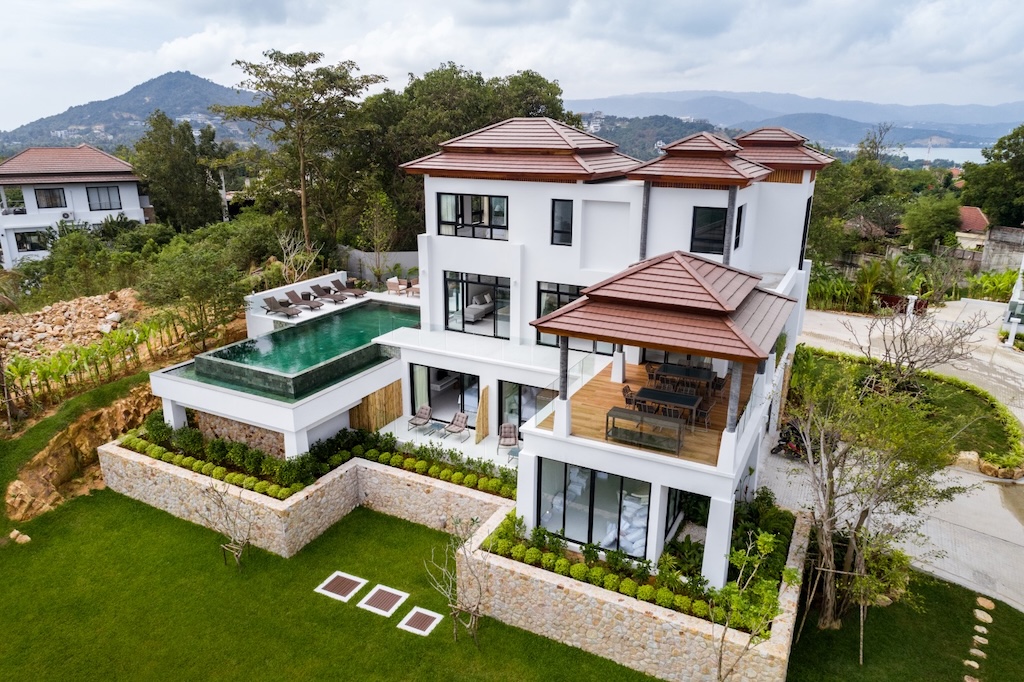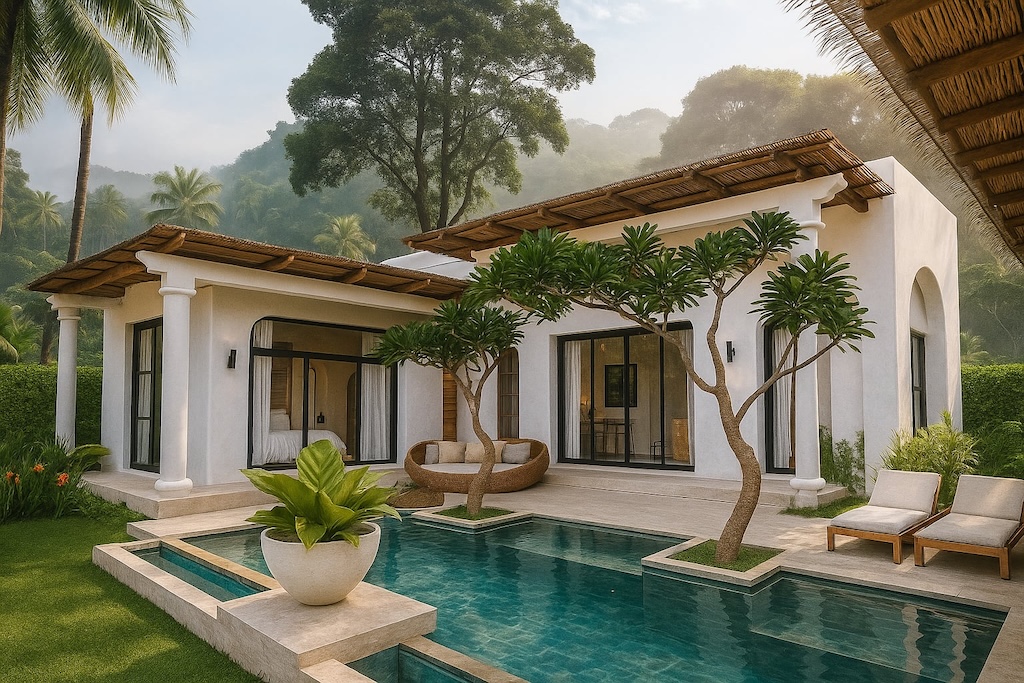
Foreign Freehold Land Ownership in Thailand – Thailand’s picturesque landscapes and vibrant culture have long attracted foreign investors and expatriates seeking to establish roots in the Land of Smiles. However, the country’s stringent regulations on land ownership by non-Thai nationals have historically posed significant challenges. In a groundbreaking move, the Thai government has introduced a pathway for foreigners to acquire freehold land ownership through a substantial investment, opening new possibilities for those looking to make Thailand their home.
This comprehensive guide delves into the intricacies of this new regulation, exploring the requirements, processes, and implications for foreign nationals seeking to own land in Thailand. From the investment criteria to the potential impact on the real estate market, we’ll cover everything you need to know about this landmark development in Thai property law.
The Evolution of Land Ownership Laws in Thailand
Thailand’s land ownership laws have undergone significant transformations over the years, reflecting the country’s changing economic landscape and its efforts to attract foreign investment. Historically, the Kingdom has maintained strict controls on foreign land ownership to preserve its national interests and cultural heritage.
Historical Context – For decades, Thailand’s Land Code has prohibited foreigners from owning land outright. This restriction stems from concerns about maintaining national sovereignty and preventing the exploitation of Thai resources by foreign entities. As a result, non-Thai nationals have been limited to leasehold arrangements or ownership of condominium units, subject to specific quotas.
Gradual Liberalization – In recent years, Thailand has recognized the potential economic benefits of allowing greater foreign participation in its real estate market. This realization has led to gradual reforms, including:
- The introduction of long-term leases for foreigners
- Relaxation of restrictions on condominium ownership
- Exploration of special economic zones with more lenient ownership rules
These incremental changes have paved the way for the current initiative, which represents a significant leap forward in Thailand’s approach to foreign land ownership.
The 40 Million Baht Investment Scheme – The latest development in this evolving landscape is the introduction of a scheme allowing foreigners to acquire freehold land ownership through a substantial investment. This initiative aims to attract high-net-worth individuals and stimulate economic growth by encouraging long-term capital inflows into the country.
Understanding the Regulation For Freehold Land Ownership
The Thai Cabinet’s approval of a draft Ministerial Regulation marks a pivotal moment in the country’s property ownership landscape. This new regulation builds upon existing frameworks while introducing novel elements to accommodate foreign investors.
Key Features of the Regulation
- Investment Threshold: Foreigners must invest a minimum of 40 million baht to acquire foreign freehold ownership (approximately $1.1 million USD) in Thailand.
- Land Allocation: Successful applicants can acquire up to one rai (1,600 square meters) of land for residential purposes.
- Duration: The regulation is set to be in effect for an initial period of five years, subject to review and potential extension.
- Eligible Areas: Land purchases are restricted to specific zones, including Bangkok, Pattaya, and designated residential areas in other provinces.
- Purpose Limitation: The acquired land must be used solely for residential purposes by the investor and their family.
Target Groups – The regulation is designed to attract specific categories of foreign nationals:
- Wealthy individuals seeking long-term residency in Thailand
- Retirees looking to establish a permanent home in the country
- Foreign professionals wishing to work remotely from Thailand
- Highly skilled expatriates contributing to Thailand’s economic development
By targeting these groups, Thailand aims to foster a diverse and economically beneficial foreign resident community.
Investment Criteria and Eligible Assets
To qualify for freehold land ownership under this scheme, foreign investors must meet specific investment criteria and allocate their funds to approved asset classes. Understanding these requirements is crucial for those considering this opportunity.
Minimum Investment Requirement – The cornerstone of this regulation is the 40 million baht investment threshold. This substantial sum underscores Thailand’s focus on attracting high-net-worth individuals who can make significant contributions to the economy.
Eligible Investment Vehicles – The Thai government has outlined several investment options that qualify under the foreign freehold land ownership scheme:
- Thai Government Bonds: Investing in sovereign debt securities issued by the Thai government.
- Real Estate Investment Trusts (REITs): Purchasing units in Thai REITs that focus on property investments within the country.
- Infrastructure Funds: Allocating capital to mutual funds that invest in Thailand’s infrastructure projects.
- Board of Investment (BOI) Promoted Enterprises: Investing in companies or projects that have received promotional privileges from Thailand’s Board of Investment.
- Stock Market Investments: Acquiring shares in Thai companies listed on the Stock Exchange of Thailand (SET).
Investment Duration – To ensure the long-term nature of these investments and their positive impact on the Thai economy, investors are required to maintain their investments for a minimum of three years from the date of application for land ownership.
Diversification Requirements – While the regulation allows for flexibility in investment allocation, it’s advisable for investors to diversify their portfolios across multiple eligible asset classes. This approach not only mitigates risk but also aligns with the government’s goal of stimulating various sectors of the economy.
Foreign Freehold Land Ownership Application Process Thailand
Navigating the application process for foreign freehold land ownership in Thailand requires careful attention to detail and thorough preparation. Foreign investors must follow a structured procedure and submit comprehensive documentation to support their application.
Step-by-Step Application Guide
- Investment Verification: Secure documentation proving the 40 million baht investment in eligible assets.
- Location Selection: Identify suitable land within approved areas that comply with the regulation’s restrictions.
- Application Submission: File the official application (Alien 4 form) with the competent authorities, along with all required supporting documents.
- Review Process: The application undergoes scrutiny by relevant government departments, including the Ministry of Interior and the Land Department.
- Approval and Registration: Upon approval, proceed with the land purchase and register the ownership with the local land office.
Required Documentation – Applicants must prepare and submit the following documents:
- Valid passport or foreign identification card
- Proof of residence in Thailand (if applicable)
- Detailed investment portfolio demonstrating compliance with the 40 million baht requirement
- Certificate of investment issued by relevant financial institutions or government bodies
- Land title deed and location map of the property to be purchased
- Confirmation that the chosen land is not within a military safety zone
- Any additional documents required by local authorities or specific to the chosen investment vehicles
Legal Considerations – It’s crucial for applicants to seek professional legal advice throughout this process. Thai property law can be complex, and ensuring full compliance with all regulations is essential to avoid potential pitfalls or legal challenges in the future.
Restrictions & Limitations To Foreign Freehold Land Ownership
While the new regulation opens up unprecedented opportunities for foreign freehold land ownership in Thailand, it comes with a set of carefully crafted restrictions and limitations designed to protect national interests and maintain control over land use.
Geographical Restrictions – Land purchases under this scheme are limited to specific areas:
- Bangkok Metropolitan Area
- Pattaya City
- Municipal zones in other provinces
- Areas designated for residential use under the Town Planning Act
These restrictions aim to concentrate foreign ownership in urban and developed areas, preserving rural and agricultural lands for Thai nationals.
Usage Limitations – The acquired land must be used exclusively for residential purposes. This means:
- No commercial activities are permitted on the property
- The land cannot be rented out or used for any business operations
- The property must serve as a primary or secondary residence for the foreign owner and their family
Resale Restrictions – To prevent speculation and ensure long-term commitment, the regulation imposes restrictions on reselling the property:
- The land cannot be sold within the first three years of ownership
- Any sale after this period must be reported to the relevant authorities
- If the property is sold, the foreign owner may lose the right to purchase another plot under this scheme
Compliance and Monitoring – Foreign landowners are subject to ongoing compliance requirements:
- Regular reporting to local authorities on the use of the property
- Potential inspections to ensure adherence to residential use guidelines
- Obligation to inform officials of any changes in investment status or personal circumstances that might affect eligibility
Economic Impact and Market Dynamics
The introduction of foreign freehold land ownership through substantial investment is poised to have far-reaching effects on Thailand’s economy and real estate market. Understanding these potential impacts is crucial for both investors and policymakers.
Stimulating Foreign Investment – This initiative is expected to attract significant foreign capital into Thailand:
- Direct investment in real estate and land
- Increased inflow of funds into Thai financial markets and government bonds
- Potential for ancillary investments in local businesses and services
Real Estate Market Effects – The new regulation could reshape Thailand’s property landscape:
- Potential increase in high-end property values in eligible areas
- Development of new luxury residential projects catering to foreign buyers
- Possible spillover effects on the broader real estate market
Economic Growth and Development – The scheme aims to contribute to Thailand’s economic growth through:
- Job creation in construction, real estate, and related services
- Increased consumer spending by wealthy foreign residents
- Potential for knowledge transfer and skills development in various sectors
Balancing Act for Policymakers – Thai authorities face the challenge of balancing economic benefits with social considerations:
- Ensuring that the influx of foreign investment doesn’t lead to unaffordable housing for locals
- Maintaining cultural integrity in areas with increased foreign presence
- Addressing potential concerns about land sovereignty and national identity
Comparison with Other Southeast Asian Countries
Thailand’s move to allow foreign freehold land ownership places it in a unique position among its Southeast Asian neighbors. Comparing this policy with those of other countries in the region provides valuable context and highlights Thailand’s competitive stance in attracting foreign investment.
Singapore
- Allows foreigners to own private apartments and condominiums
- Restricts landed property ownership, with exceptions for Sentosa Cove
- No minimum investment requirement for property ownership
Malaysia
- Offers the “Malaysia My Second Home” program
- Allows foreigners to buy property with minimum purchase prices varying by state
- Generally more liberal than Thailand’s previous policies but less so than the new regulation
Vietnam
- Restricts foreign ownership to apartments only
- Limits foreign ownership to 30% of units in any given condominium complex
- Does not allow freehold land ownership by foreigners
Indonesia
- Offers long-term leasehold options for foreigners
- No freehold ownership permitted for non-citizens
- Recent discussions about relaxing restrictions, but no concrete changes yet
Philippines
- Restricts foreign land ownership entirely
- Allows foreigners to own condominium units up to 40% of a building’s total units
- Offers long-term lease options for land
Thailand’s new policy positions it as one of the more progressive countries in Southeast Asia regarding foreign freehold land ownership, potentially giving it a competitive edge in attracting high-net-worth individuals and long-term investors to the region.
Conclusion
The introduction of foreign freehold land ownership for in Thailand through the 40 million baht investment scheme marks a significant milestone in the country’s approach to foreign investment and property rights. This bold move positions Thailand as an attractive destination for high-net-worth individuals and long-term investors, potentially catalyzing economic growth and development across various sectors.
However, the success of this initiative will depend on careful implementation, ongoing monitoring, and the ability to balance economic benefits with social and cultural considerations. As Thailand navigates this new terrain, it will be crucial for policymakers, investors, and local communities to work together to ensure that the benefits of foreign land ownership are realized while preserving the unique character and interests of the Thai nation.
For prospective foreign investors, this regulation opens up unprecedented opportunities to establish a permanent presence in one of Southeast Asia’s most vibrant economies. However, it also requires careful consideration of the investment criteria, legal obligations, and potential risks associated with land ownership in Thailand.
As this policy evolves and its impacts become clearer, Thailand may well set a new standard for foreign property ownership in the region, potentially influencing neighboring countries and reshaping the landscape of international real estate investment in Southeast Asia.





